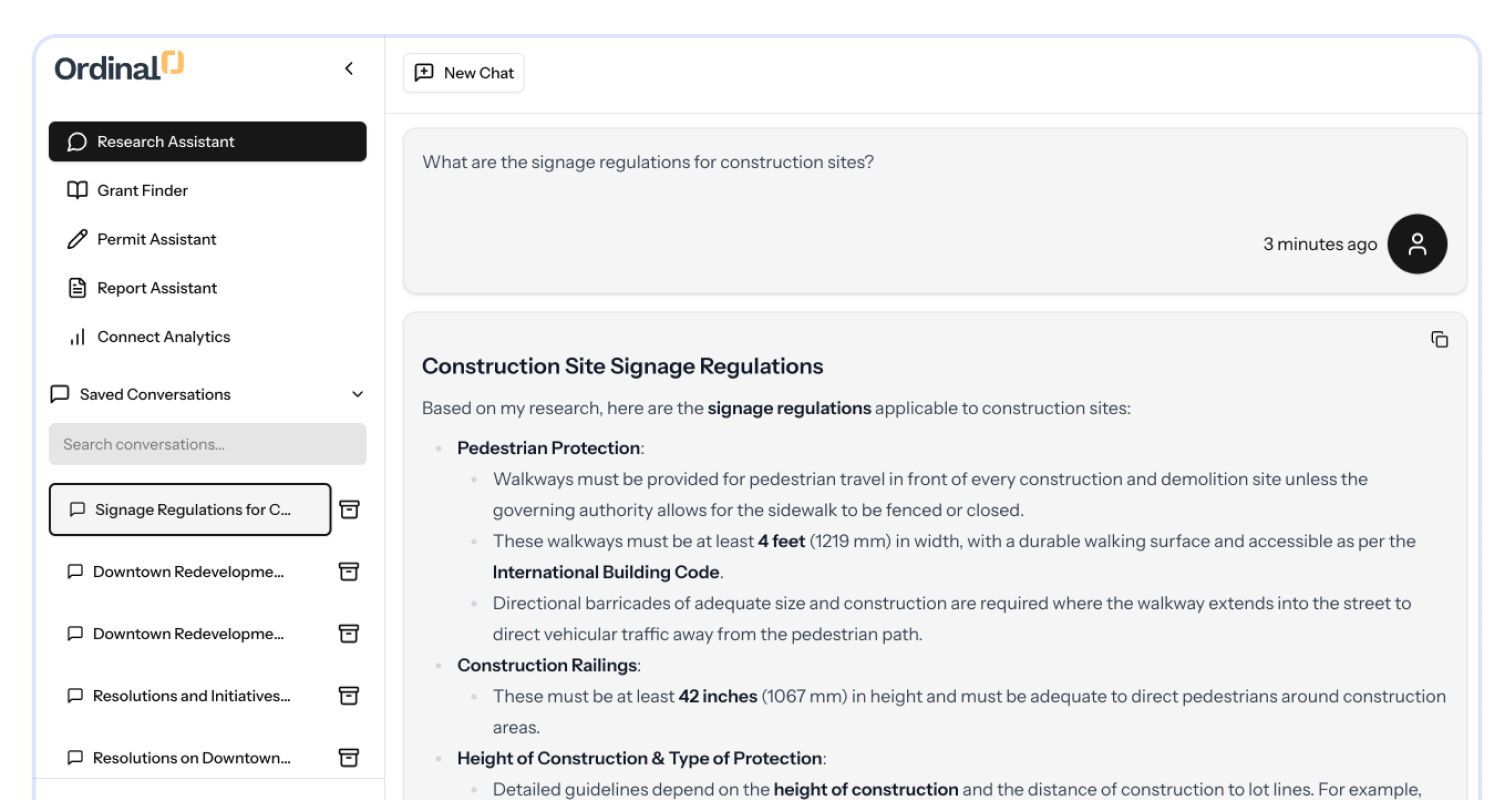
Published on
June 20, 2025

.png)
Artificial Intelligence is opening new doors for governments: faster research, easier communication, and better service for residents. But if you're comparing tools like Ordinal and ChatGPT, it's important to understand that not all AI tools are built the same.
Here’s why Ordinal is the right choice for local governments, and how it technically differs from ChatGPT.
ChatGPT is great if you want to brainstorm dinner ideas or write a poem. But if you ask it something specific—like a zoning question from your city code—it may give you an answer that sounds confident… but is totally wrong.
Why? Because ChatGPT builds answers based on patterns in language, not facts. It can literally “make things up” when it doesn’t know the answer. That’s called hallucination in AI-speak.
Ordinal, on the other hand, is built differently. Here’s how:
Ordinal uses an AI method called RAG (Retrieval-Augmented Generation). Instead of pulling from the entire internet, it can only look at your city’s own documents: your policies, your codes, your GIS data.
If it can’t find the answer? It won’t pretend.
ChatGPT is like a general practitioner who knows a bit about everything and can help broadly. Ordinal, on the other hand, is a specialist, precisely diagnosing and prescribing solutions to your exact condition using detailed records and evidence.
When you upload documents to either tool, AI will “process” that document in a function called chunking. This is essentially breaking down the data so the AI can more easily process that document and respond.
ChatGPT only lets you upload up to 20 files, then scrambles to figure out what’s in them. The more you upload, the more probable it will get confused and return incorrect responses.
At Ordinal, our team even manually reviews how the documents are “chunked,” so context never gets lost. You can add as many documents as you want, update them anytime, and see exactly which ones were used to answer a question.
Ordinal isn’t trying to solve every problem for every industry. (Or create sentience.) It’s purpose-built for local government. That means we are constantly adding more useful features like: accurate references from your documents, email drafting for constituent responses, grant database search, and AI plan review.
With ChatGPT, you’re on your own to get government-wide adoption. And when something breaks, whoever built the custom GPT better be around to fix it.
Ordinal comes with training for your team, built-in prompting help, and support if anything goes wrong.
If you’re working in local government, accuracy isn’t optional. It’s essential.
Ordinal is the only AI tool designed to meet that bar. Built for city teams, trained on your documents, and backed by real references: this is AI you can trust.
Want to see how it works? Request a demo today.
Ready to see Ordinal in action? Book some time with our team and we’ll show you just how valuable this could be for you and your staff.
